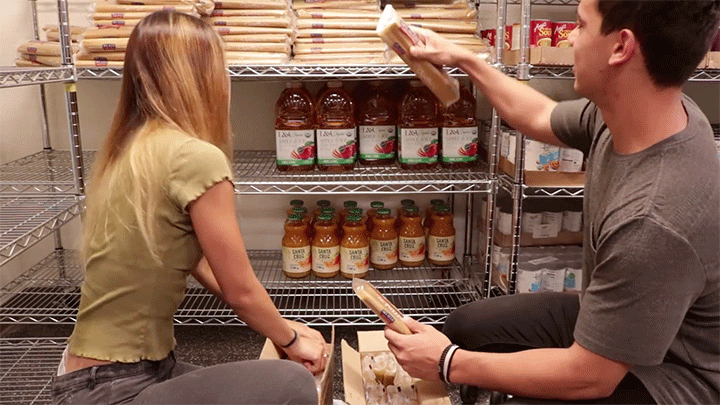
PALO ALTO – As students across the nation grapple with the challenges of a virtual semester, the University of California is considering expanding its definition of basic needs beyond minimal food and shelter.
Finances, transportation, health and medical care, emotional and mental wellness, hygiene, sleep, and services for students with dependents are new basic needs areas that were identified in a comprehensive report examining basic needs across the UC’s 10 campuses released in July.
“Anyone in higher education right now that is committed to access, affordability, persistence, performance, and graduation needs to understand that basic needs are a huge factor that needs to be addressed,” said Ruben E. Canedo, co-chair for the UC Basic Needs Committee.
The urgency to expand the scope of basic needs comes as COVID-19 pushes students off-campus this fall for online classes. That also means access to services such as food pantries and in-person counseling are limited, causing some students to drop out because of financial strains.
This first year of research and development paves the way for a more coordinated effort among existing campus services related to fulfilling new basic needs’ areas for both in person and remote care. He said more specific and tangible changes will be announced in the next phases of the UC’s efforts. This first phase of research and development would inform any changes to funding or structure at the campus level.
At last month’s online Basic Needs Committee meeting at UC Berkeley, Canedo said campuses are providing the UC Board of Regents with their final recommendations for a new basic needs model before implementing new system-wide policies expected to roll out in December.
UC data gathered in 2016 shows that before the pandemic roughly half of all undergraduates and a quarter of graduate students in the UC system have experienced some form of food insecurity. About five percent of all students report experiencing homelessness. African American and American Indian students are most impacted.
Right now, Campuses are responding to immediate needs by allowing any UC student to access services at the nearest UC campus from where they live regardless of whether or not they attend that college.
Canedo considers students’ current circumstances an injustice which he wants to remedy with a new framework.
“Our values are not just belonging, but also justice. Because the fundamental experience of higher education right now is not centered in belonging or justice, much less both,” he said.
UC Berkeley senior Leitasika Faumuina, 32, is juggling taking care of her ten-year-old daughter while they both attend school online. She says accessing support services like counseling and the food pantry is hard in a virtual school year.
“Campus was a place for me away from home where I can get what I need…But at home it was just like, I didn’t know where to start,” she said. She added that keeping track of remote services is overwhelming with a deluge of emails every day.
It’s a struggle Faumuina described as being in a pool of sharks. a transfer student who is Samoan and Black, hopes others do not have to face barriers to access services. As a student parent, she’s also had to miss class to ensure her child’s needs are met, too.
“I’ve written [my professors and] they seem like they’re supportive, but I can tell sometimes they’re just kind of like, ‘figure this out, we can’t keep letting you slide,’” she said.
Stories like hers echoed at the California Higher Education Basic Needs Alliance, or CHEBNA, conference where more than 700 leaders from the California State University, California Community Colleges, and UC convened in February.
Lande Ajose, Gov. Gavin Newsom’s senior policy advisor for higher education, emphasized the need for a holistic approach. “It is about really trying to figure out how do we deeply solve poverty and how do we live into the promise of higher education as being the solution to that and not the cause,” she said at the conference.
Ajose noted that the Governor’s agenda has increased funding for food and housing insecurity, basic needs, legal services, and mental health services on college campuses.
“It is not enough to get your admission letter. It is not enough to get your financial aid packet, because there are barriers that are real when you get to that campus,” she added.
The alliance is the first of its kind at this scale for the state. Canedo is hopeful the unified front will lead to more tangible support.
“When folks ask me, ‘how have you all been able to accomplish so much in just six years?’…It’s because of the community, it’s because of interdependency, it’s because of our values of belonging and justice,” he said.
The next CHEBNA conference is set for February 2022.
“By that time we hope that COVID has been healed,” Canedo said. “So that the entire community knows clearly where we’re headed.”
